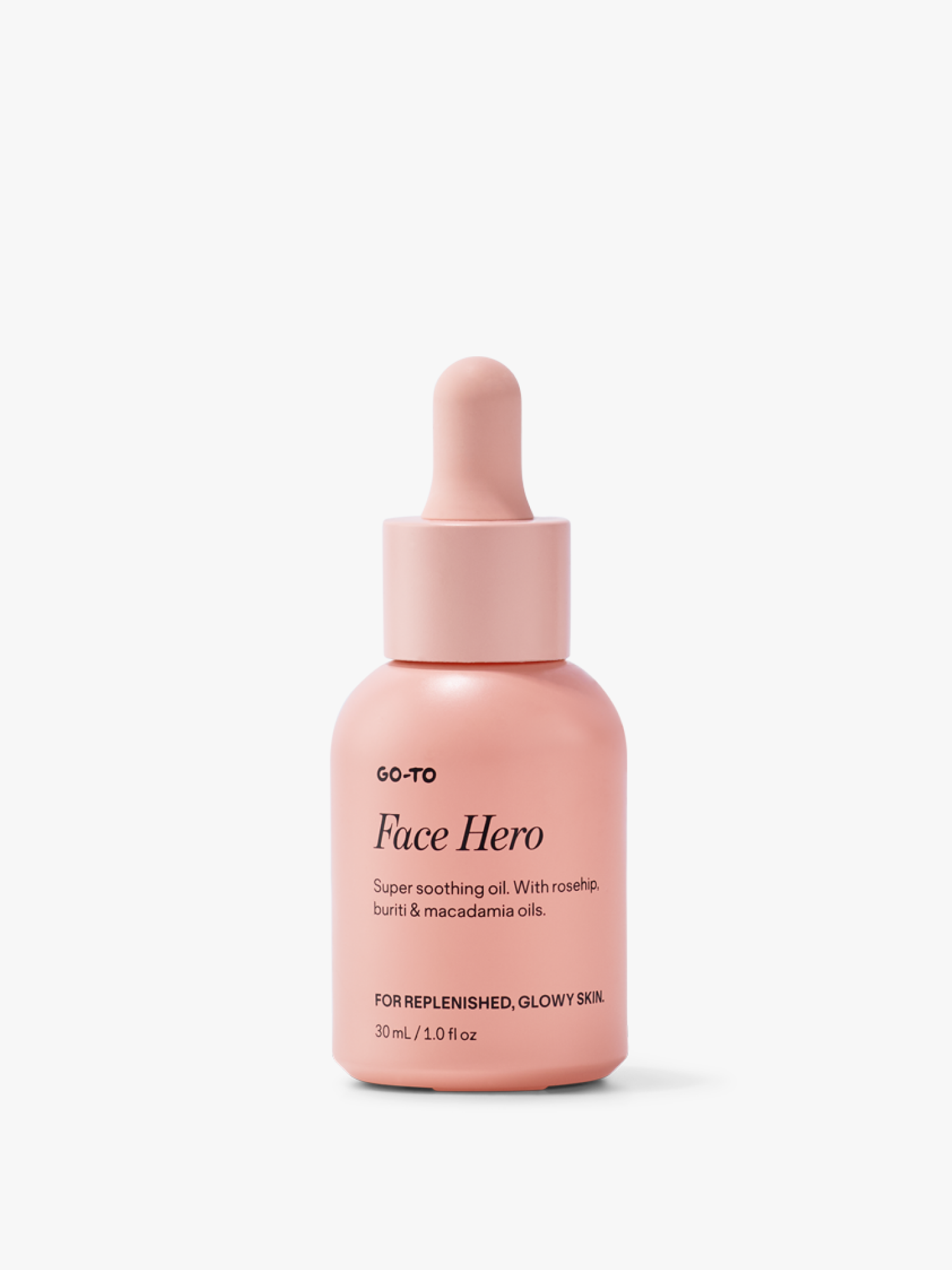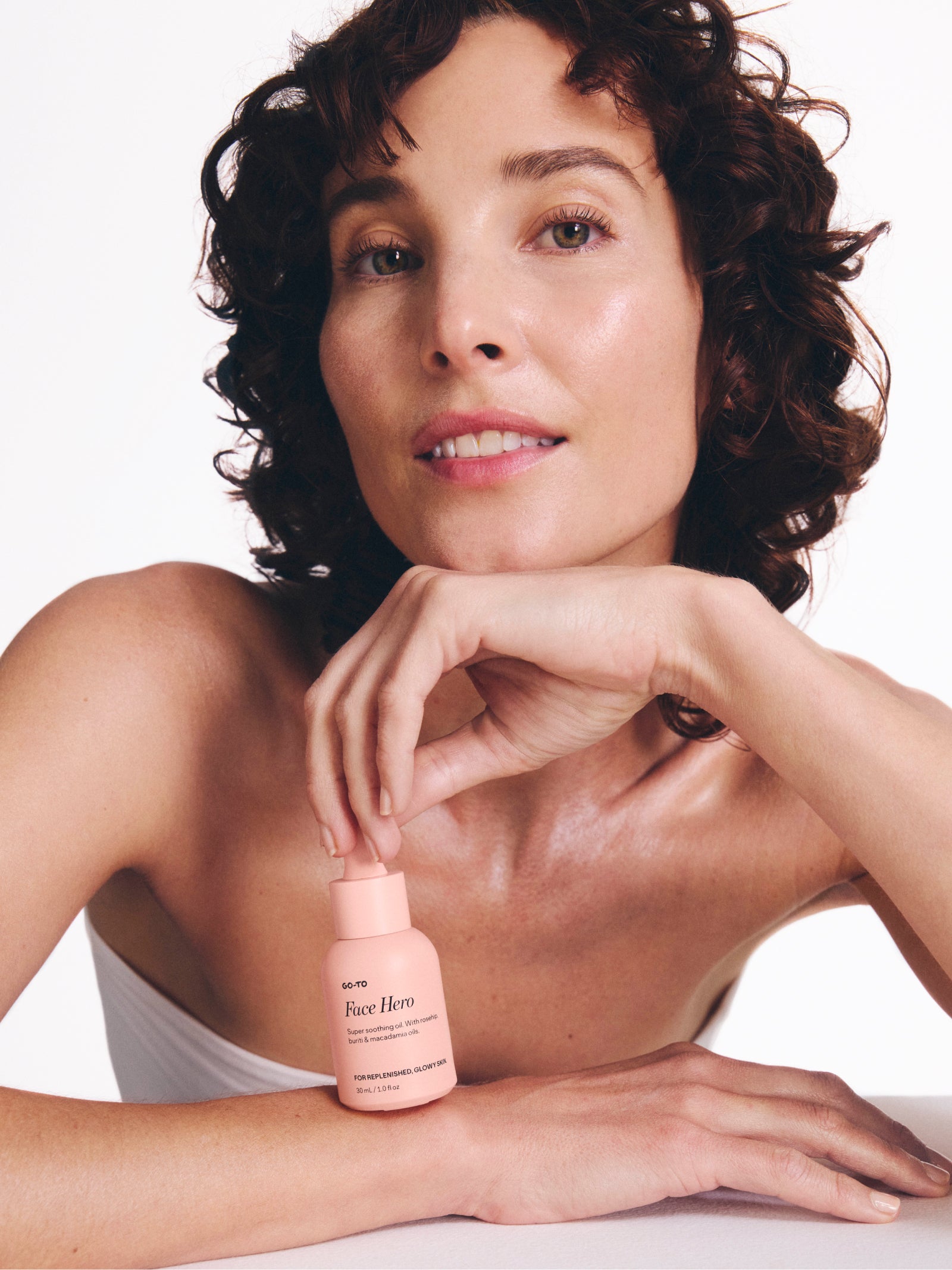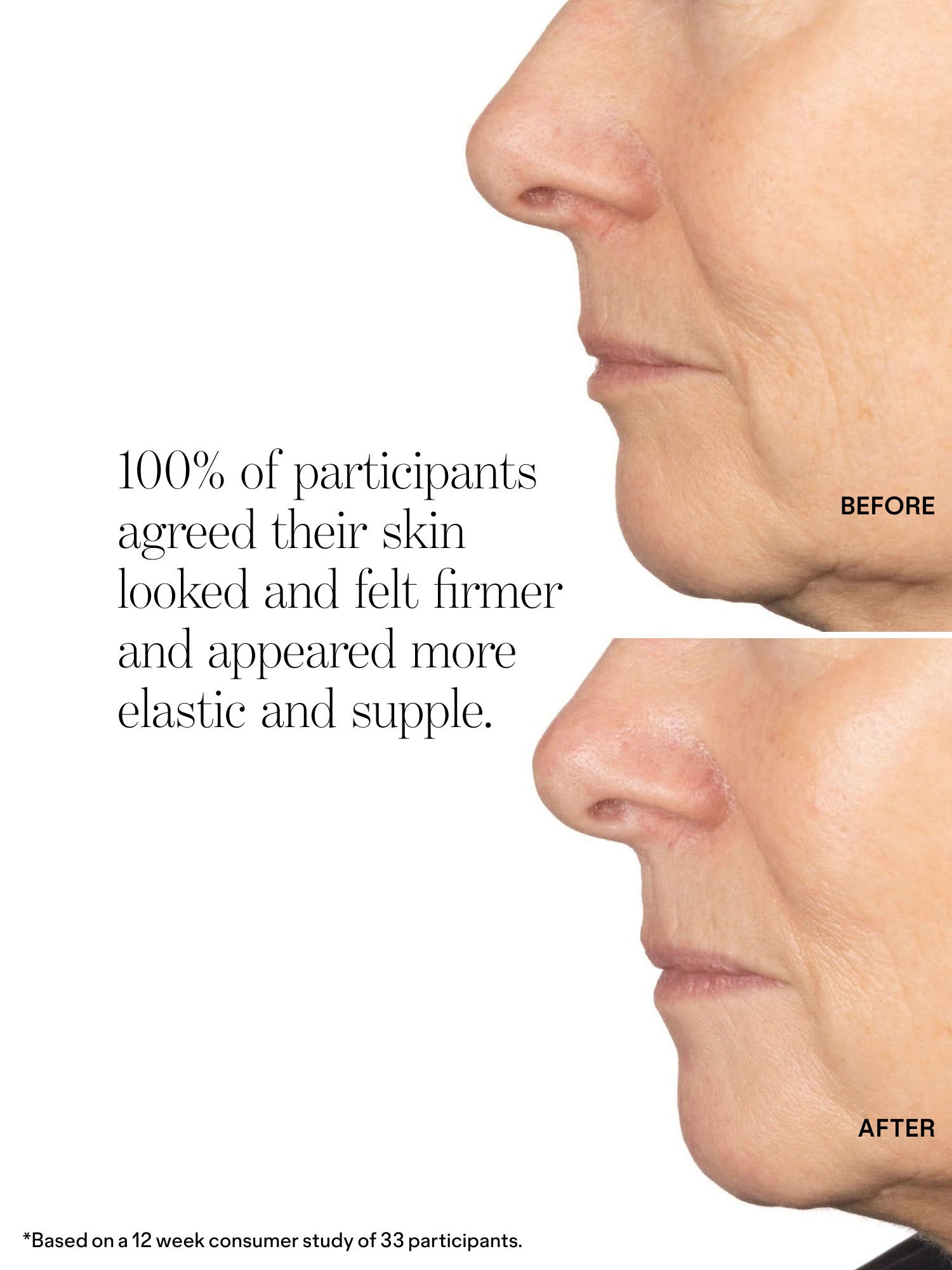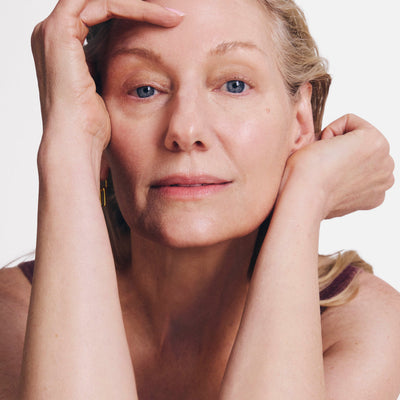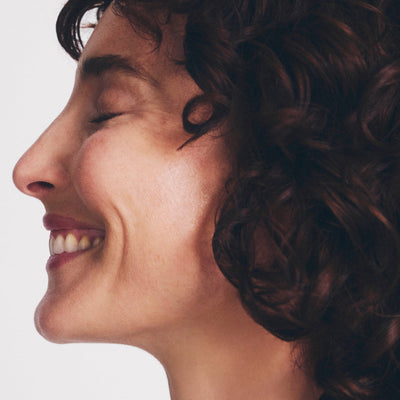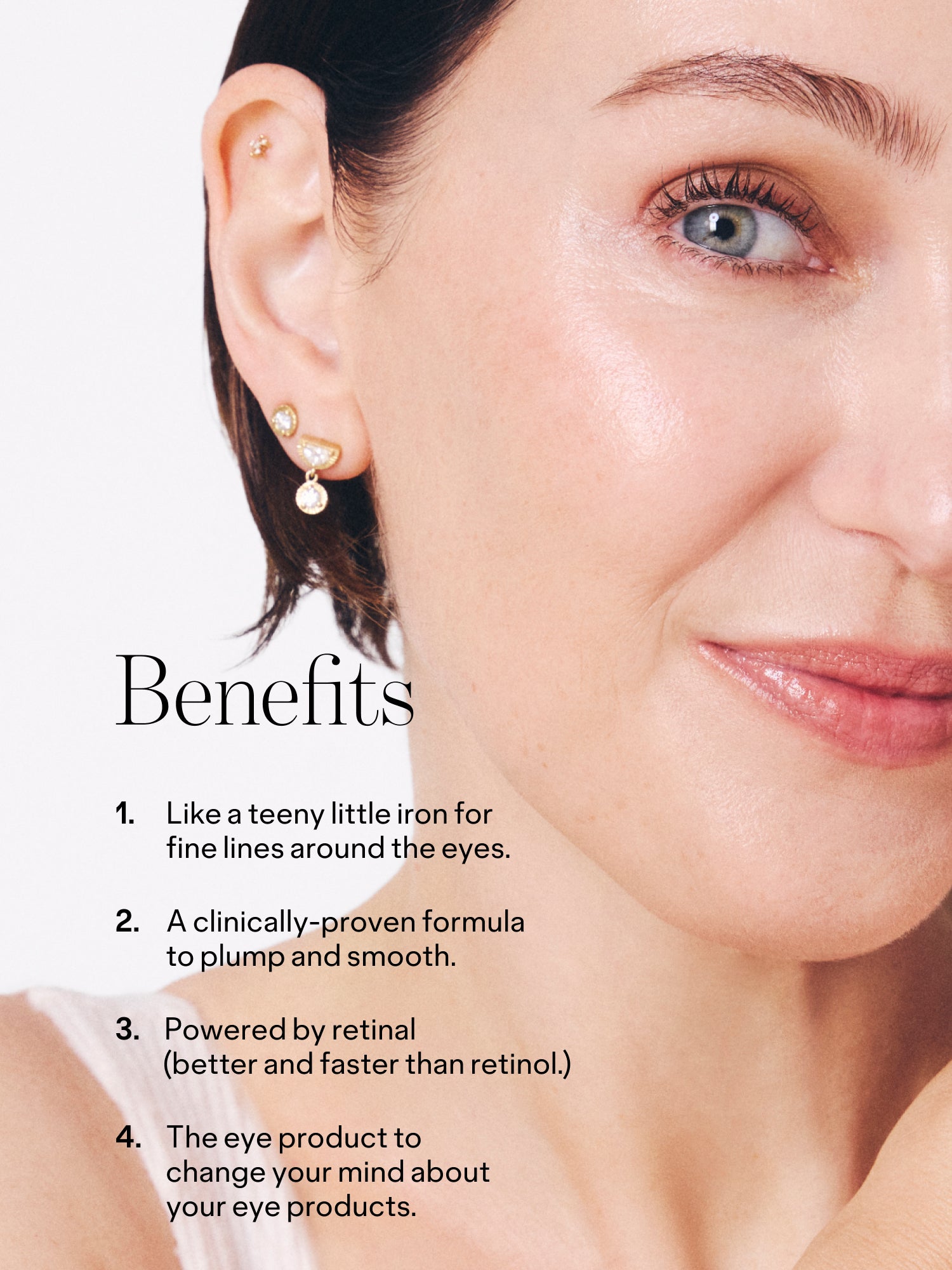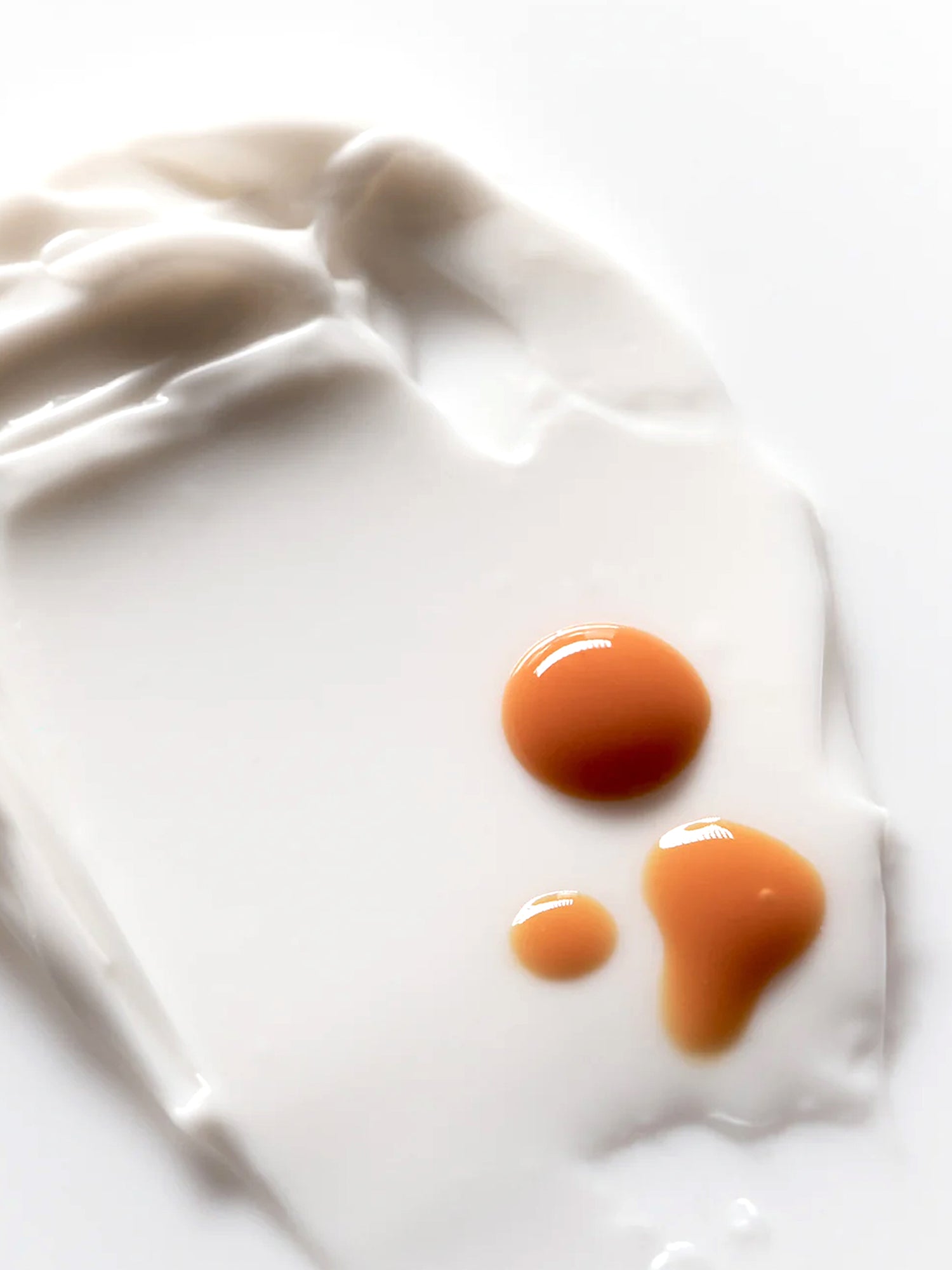What does a retinal do?
It increases cell turnover, promotes collagen production, and reduces the appearance of fine lines and wrinkles. Vitamin A (in the form of retinal, retinol, retinyl palmitate, tretinoin etc) is the gold standard in anti-ageing.
Ask any derm: if you wanna soften the lines on your face: Vitamin A.
*And if you wanna help prevent them in the first place: SPF.
Are retinal serums suitable for all skin types?
Our retinal serum, Very Amazing Retinal, is dermatologically tested to be suitable for all skin types and skincare levels. Consider it the go-to for beginners, skintellectuals, and every face in between.
How do I add retinal to my skincare routine?
In the evening! Post-cleanse, and on dry skin, apply your retinal serum to your whole face. Right down to the neck and chest. Allow the retinal to absorb into the skin before following on with additional hydrating serums, face oils, and creams.
Do not use exfoliating acids, or actives, on the same day (try skin cycling instead). And if you are new to retinal, new to Go-To’s formulas, or someone who has particularly dry or sensitive skin, we recommend starting very slow. Incorporate retinal into your routine once or twice a week before gradually building up tolerance for more frequent use.
Always patch test prior to use.
What are the potential side effects of using retinal?
Kickstarting your skin renewal journey with a retinoid can cause some frustrating side effects. For most people, these effects are temporary, and pushing through this phase is very worthwhile.
During the first 2-4 weeks of retinoid use is when you can start to see some change in the skin (but this timeline does vary from face to face). You might start to notice shedding of sluggish and disordered cells, both on the skin’s surface, and within the pores. This can cause some congestion and inflammation, often referred to as purging. Redness, flaking, peeling, and sometimes stinging or burning can also occur.
The degree of side-effects is dependent on the type of retinoid being used, how frequently it is being used, and the skin type of the individual. Those with overly sensitive or reactive skin will likely experience the most side effects. In which case a retinal serum is recommended because it has the best tolerability-efficacy ratio of all the retinoid family.
When can you expect to see results from retinal?
Dr Cara McDonald, Dermatologist, has confirmed that after three months of consistent retinal use, you will see an increase in the thickness of the epidermis (the cellular, top layer of the skin), and an improvement in the appearance of fine lines and wrinkles. For faces prone to acne and congestion, she has advised, you will notice a decrease in blackheads and fewer acne breakouts as well.
At six months your skin tone and texture will appear more even, smoother, and generally brighter. Which should bring about a noticeable difference to any pigmentation in the skin too.
Then, there is evidence for ongoing improvement in the skin for up to 24 months*. Retinal, can continue to help increase the production of dermal collagen, and decrease collagen breakdown.
The best results, clearly, come from long term use. Read more here.
*Kang S, Bergfeld W, Gottlieb AB, Hickman J, Humeniuk J, Kempers S, Lebwohl M, Lowe N, McMichael A, Milbauer J, Phillips T, Powers J, Rodriguez D, Savin R, Shavin J, Sherer D, Silvis N, Weinstein R, Weiss J, Hammerberg C, Fisher GJ, Nighland M, Grossman R, Nyirady J. Long-term efficacy and safety of tretinoin emollient cream 0.05% in the treatment of photodamaged facial skin: a two-year, randomized, placebo-controlled trial. Am J Clin Dermatol. 2005;6(4):245-53. doi: 10.2165/00128071-200506040-00005. PMID: 16060712.






